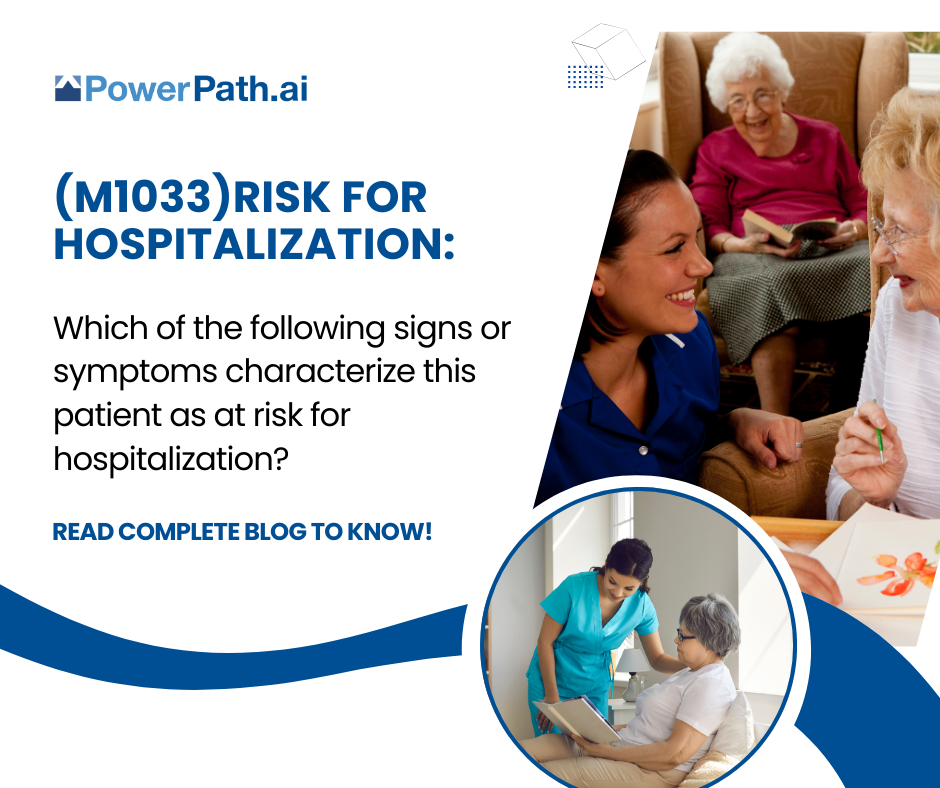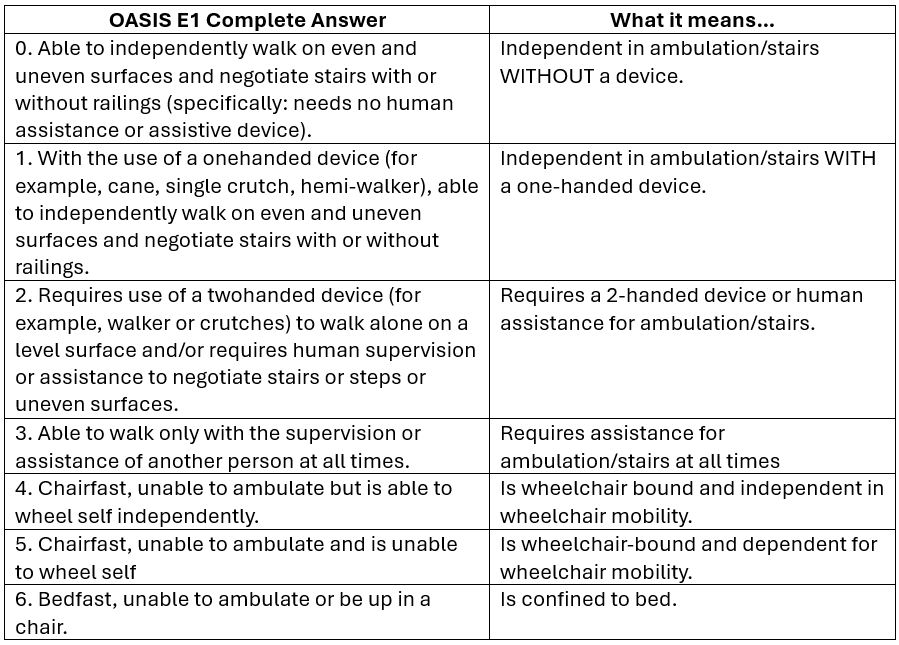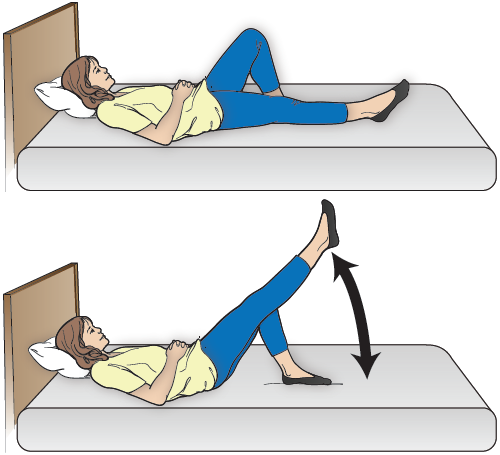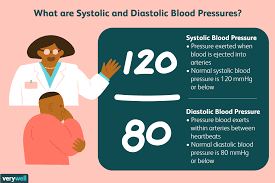Recent Posts
How Patient Risks Sabotage the Home Health Admission
OASIS Has 132 Questions. 44 Are Patient Risk Factors.
Medicare places great importance on managing risk factors.
There are 132 questions on OASIS E1 Start of Care and 44 (33%) are risk factor questions. Since the original version released in 1998, the majority of the OASIS assessment...
M1860 Ambulation/Locomotion: Make Sure PT Careplan Advances Star Ratings
It’s Not Difficult to Satisfy Medicare.
Its not difficult to satisfy Medicare's Value-based Purchasing challenge to improve outcomes. For example, to show improvement for M1860 Ambulation/Locomotion, if the patient scores a '3' on admission (3. Able to walk only with the supervision or...
The #1 Most Important Question to Answer on the Admission Visit
The primary role of the home health provider is to teach the patient/caregiver how to manage her/his own medical and functional needs. A successful discharge means the patient/caregiver is able to recall and/or demonstrate all the preventive care needed to maintain medical and...
5 Procedures Every Patient Should Practice...Regardless of Diagnosis
To receive home health benefits patients typically must be homebound – unable to leave the home without assistance. Being homebound can exacerbate already-present conditions: shortness of breath, mobility limitations and skin breakdown to name a few. All patients should be taught the...
OASIS E: Four (4) Questions on Patient Nutrition
Medicare's OASIS-E assessment, effective January 2023, expanded its data collection on the patient's nutritional status to include four (4) more questions on Start of care, Resumption and Discharge.
The presence of Parenteral/IV feeding and Feeding tube (e.g., nasogastric or abdominal...
OASIS-E: J0510 Pain Effect on Sleep...Medicare's Intent?
Sleep is a fundamental component of overall health and well-being, yet for many individuals experiencing chronic pain, restful sleep remains elusive. The interplay between pain and sleep is a complex issue that significantly impacts quality of life. We're exploring here how pain...
Home Health Best Practices for Reducing Hospitalizations
As certified HHAs already know, Medicare is tracking your hospital admission rates. Hospital re-admission rates are tracked for all providers...hospitals, nursing homes, rehabilitation, dialysis facilities... because a hospital admission may suggest a breakdown in patient care.Around...
Teach the Patient/Caregiver How to Take a Blood Pressure
The trained patient/caregiver is the best resource for identifying ineffective treatment.
Teaching the patient/caregiver to monitor the patient's blood pressure will contribute to a well-managed hypertension condition.











